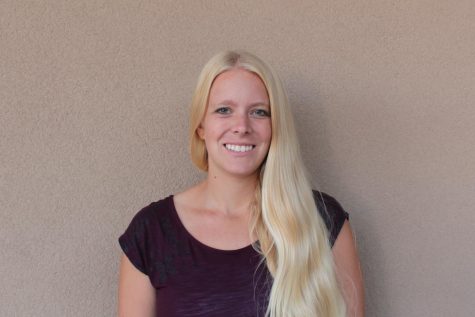Over Our Limit
Parents turned activists: infant son’s death inspires a life-saving movement
The value of a moment is not something that can be easily de- fined. There are moments that give us life and moments where life is given, and sometimes those two happen simultaneously. Then there are the moments we wish was the moment to end all moments. Moments that can rip away life or the very will to live.
In this life there is pain that is indescribable. One of those is the burden of burying a child.
In a moment, 15-month-old Liam Kowal sustained fatal injuries on a bright and sunny Saturday afternoon in Southern Los Angeles. His tiny body was struck by a drunk driver while his teenage aunt pushed his stroller across a crosswalk. Behind the wheel was a 72-year-old woman who was well over the legal limit. Being no match for an accelerating SUV, the duo were run down leaving the stroller torn in two.
The fight for Liam’s life ended after hours of fighting in the hospital, but the fight for the lives of others is just beginning. Now only his legacy remains.
The young child was the first child of professional MMA fighter, Marcus Kowal. In a moving speech about his cause, he stated that the physical pain he was trained to endure in the ring did nothing to prepare him for the emotional pain he experienced when he took his son off of life support.
After discovering the shocking drunk-driving fatality statistic their son was now a part of, Kowal and his wife Michele, have dedicated their loss to a non-profit foundation called Liam’s Life.
Their mission is to pass a bill that will legally reduce the blood alcohol driving level to 0.05% in California from its current standing of 0.08%. Despite having the potential to save thousands of lives, the bill that has faced rejection from many legislators and lawmakers.
How much does it take to be over the limit? It’s more than what most people believe. While tolerance differs for everyone, four drinks in a few hours is the average amount of alcohol to raise a blood alcohol level to 0.08%. At this level the drinker will experience significant diminishment to coordination, visual perception, accuracy, and reaction time. In many expert opinions, 0.08%, is too intoxicated to drive. This bill seeks to decrease the legal limit by only about one drink.
According to the DMV, drunk driving deaths reach about 1,300 per year in California. For perspective, that’s about the same number that are predicted to die when the widely feared 9 magnitude earth- quake finally shakes Southern California. It also totals up to about half the firearm related deaths that occur in California per year.
This law is not an attack on your Friday night. This is not the awkward lecture from your middle school health teacher that condemns any and all alcohol-induced activities. In no way is this a hidden agenda of conservative or religious views to control your personal life. Nor is it an effort to make California as notoriously dry as Utah. Since the government spends a whooping $4 billion on DUI-related damages as is, this isn’t a ploy to line their pockets. This is solely about keeping drinking in bars and off the roads. It is to encourage people to think twice about their potentially fatal decisions, if not for their lives or the lives of others, then maybe to avoid legal trouble.
Nobody wants to believe they could be responsible for somebody’s untimely death. Nobody wants to believe an exciting night out will suddenly end in tragedy. The undeniable truth is all drunk driving accidents are 100 percent preventable, as well as all the re- lated deaths.
Technology has made it easier than ever to seek safe post-bar transportation. In the past are the days when calling expensive cabs, sketchy hitchhiking or a stumbling- stroll home were the only non- driving options. Through an app, a reasonably priced ride home will arrive in a matter of minutes. Even with the recent reports of attacks and sexual harassment, taking an Uber or Lyft is still exponentially safer than risking the road solo. Getting home safe is the first line of defense in the fight.
The fight continues in Sacra- mento. In a moving documentary created by the Kowals, the heavy influence the alcohol industry has on the government is exposed. The film cites big alcohol as a major hinder of the bill and use money, power, lobbyists to persuade for limited government control. Contrary to popular belief, the people have proven historically to have a stronger influence than big business. The win of popular opinion will win the politicians. In order to do this, we as the people, need to change the culture around drinking and driving and make it the unthinkable.
Even one death from drunk driving is over the limit. Liam’s and millions of other victim’s realities are non-negotiable. But the reality of the future remains untouched, and lives can be saved. However, if consumed responsibly, there is no need to feel guilted into boycotting alcohol for the cause. In place of that, show support by signing Liam’s petition and voice that the tolerance for these deaths is zero. Keep the good times rolling off the road, and end up boycotting funeral homes instead.

